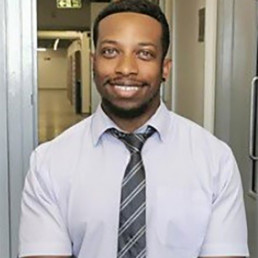
Written by Josiah Isles
Josiah Isles is an Assistant Headteacher and science teacher at Ladybridge High School in Bolton. He is passionate about improving the life chances of students from disadvantaged backgrounds.
As a member of the Diverse Educators community, I am clearly preaching to the converted when I talk about the importance of diversity in our educational settings. Instead, I want to discuss how you build positive relationships within a diverse school and the wider community. It’s a journey my school has embarked upon, full of unexpected twists and turns.
Listen to your student body
As a school, we lead by example, championing the values that are important to us. We want students to understand and see who they are, how their views fit in and how to develop their opinions. By pursuing that path, the school demonstrates behaviours that students can replicate in their lives.
But we have found that there are issues more important to the students that we wouldn’t even think of. For example, our Year 11 students recently highlighted the issue of colourism within the Asian community during a whole school presentation. We have also had to learn more about what our students call ‘pretty privilege’, a term associated with those deemed ‘conventionally pretty’. By listening to our student body, we can understand more and be better prepared when issues and challenges arise.
Immerse yourself into the community
We need to create an environment whereby students don’t have to switch codes or behaviour to accommodate school life. We should allow students to proudly display their cultural identity, which they can embrace as they transition into adulthood.
To do this successfully, we need to reach out enthusiastically to our local community. At Ladybridge High, we have a lot of Muslim students and have actively developed a relationship with our local mosque. Imams have been invited into the school to meet senior leaders. When an issue arises, we look at it from the student’s point of view. We need to step into the shoes of a Muslim student who attends school five times a week, an Islamic school on Saturdays and their local mosque every evening.
We need to remember that being a diverse school can have a huge impact on the wider community. A school is, after all, the heart of the community. Start by organising small events that will bring the community into the school. Low attendance doesn’t mean you are failing; staging regular events will send a powerful message to residents.
Ladybridge High recently held a Warm Hub event for our local community. We had people able to answer any questions visitors had about Universal Credit or food banks. They could purchase pre-loved school uniform. We even had NHS nurses offering smear tests. Attendance wasn’t great, but we will persist by staging further events. Why? We want people to see us as part of the community and an accessible resource.
Training, training, training
Yes, staff training is important when developing relationships within your school and local community. But remember to take your time. Change won’t happen overnight. Think about how you will embark on the journey. Identify areas where there are issues such as unconscious bias.
Ladybridge High has a zero tolerance to any student that uses racist or misogynistic language. The severity with which we challenge such behaviour sets an important tone for the school. Of course, there can be a wariness on the part of teachers about approaching the concepts of diversity. Individuals are rightly concerned about causing offence. Training should help teachers be comfortable with using the right words – especially when explaining offensive language. The BBC Teach website, for example, has articles written by teachers sharing their views and experience of diversity. Many more of us need to pore over its contents to take ideas that we can implement in our schools.
Let me be clear, building positive relationships within a diverse school and the wider community is not easy. It’s not something that can be completed in a term or even a school year. And you need to persist – even when you face insurmountable problems.
Josiah Isles is an Assistant Headteacher and science teacher at Ladybridge High School. For more information about BBC Teach, please visit www.bbc.co.uk/teach

